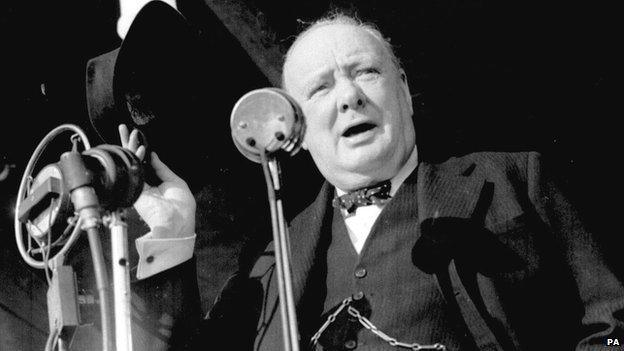The Vocabularist: Where did the term focus group come from?
- Published

The temple where the Vestal Virgins tended the sacred flame was the "focus" - or hearth - of Rome
As focus groups weigh the results of the election debate it would be fitting if they did it sitting round a cheerful fire - for "fireplace" is what focus originally meant.
At first in the middle of the floor and later by the wall, the hearth - focus, in Latin - has from the earliest times been the point on which a household's life centred. This continued to be so until it was supplanted by the telly.
To the Romans the focus was a sacred spot, where offerings were made to household gods. The temple in the forum where the goddess Vesta's flame was tended by the Vestal Virgins was considered the hearth - the focus - of the whole city of Rome.
German scientist Johannes Kepler is the first person known to have used focus in the scientific sense of a point relating in a regular way to a curve - its meaning and its link to heat made it a natural choice for a point such as that on which light is concentrated from a curved lens.
The idea that the inventor of the term "focus group" was Winston Churchill is intriguing, but a bit of a red herring. The group of high-profile opponents of the Nazis, external whose meetings he attended in the 1930s was usually just called Focus.
The New York Times called the great American sociologist Robert Merton, external the "father of the focus group" - meaning a small group of consumers or voters whose views are brought out by discussion. Merton also gave us the phrases "self-fulfilling prophecy" and "role model", the newspaper said.
He began his "focused interview" technique on homeless men in depression America and improved it with World War Two servicemen.

Winston Churchill was a member of Focus, a group of high-profile opponents of the Nazis
His efforts to track the exact stimulus that prompted an opinion gave him, he said, "almost privileged access to people's states of mind".
The actual originator of the term "focus group" was a more controversial figure. Ernest Dichter, external sought to apply Freudian techniques to marketing and draw out the submerged "iceberg" of consumers' decisions.
He was accused of making Americans the most manipulated people outside the Iron Curtain and of employing analysts to spy on children through one-way glass as they watched TV.

The Vocabularist

Subscribe to the BBC News Magazine's email newsletter to get articles sent to your inbox.